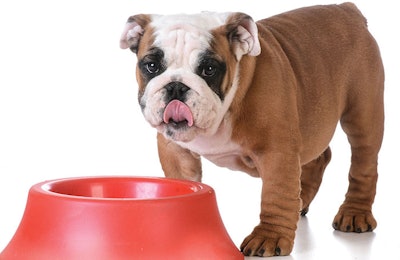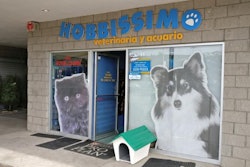
The European Commission formally endorsed new Product Environmental Footprint Category Rules for the pet food industry in April 2018. This is a significant milestone for FEDIAF and its members, enabling the industry to accurately measure the environmental impact of its products.
The Environmental Footprint is part of a European Commission initiative “Building the Single Market for Green Products” which aims at harmonizing the communication of environmental performances of products and organizations for producers and consumers alike. In 2014, the European Commission launched a three-year pilot for the food sector to develop product specific rules: Product Environmental Footprint Category Rules (PEFCRs). The Pet Food pilot was one of the eleven approved pilots in the second wave dedicated to food.
“We are proud of our contribution to environment in the agri-food sector,” said Pascale Bensman, chair of FEDIAF’s Environment and Sustainability Working Group. “The now officially adopted methodology for calculating the product environmental footprint of prepared pet food for cats and dogs will help our industry to provide transparent environmental information on the basis of a harmonized European approach.”
Why did FEDIAF participate?
The European Pet Food Industry is aware of its manifold areas of corporate social responsibility including the preservation of the environment. FEDIAF volunteered to participate in this important EU project to ensure that its responsible use of raw materials is well reflected in the EU methodology. Indeed, pet food capitalizes on resources (that are not used or little-used for human consumption) and adds value to them. Therefore, it does not negatively influence the offer of commodities on the food market. The use of by-products has an interest for the economy and the sustainable management of resources, and the EU methodology now embeds this key fact.
FEDIAF will continue collaborating with the EU institutions and Member States involved in this project to determine how this methodology should be used under future policy options, such as communication on environmental footprints of consumer goods or financial incentives for good performances.
Pet Sustainability Coalition also studies carbon footprint of pet food
In June 2018, the Pet Sustainability Coalition (PSC) released a case study that evaluates the carbon footprint of pet food ingredients in partnership with German pet food company Josera. Comparing two different formulas, PSC was able to determine the comparative carbon footprints of a lamb and rice formula versus Insect Dog, which uses insect protein supplied by Protix as its main ingredient. Not only did this data illuminate the comparative carbon footprint of two products, but it also compares carbon footprints for each ingredient, providing the potential for additional formulas aimed at reaching the lowest carbon footprint possible while maintaining nutritional performance.
The carbon footprint project is one of many sustainability initiatives at Josera, but the data had been difficult to capture before partnering with PSC. “At Josera we see it as our responsibility to protect the planet,” said Klaus Wagner, CEO of Josera, in a press release. “PSC has helped us navigate what can be a difficult pathway to address our carbon footprint.”
















